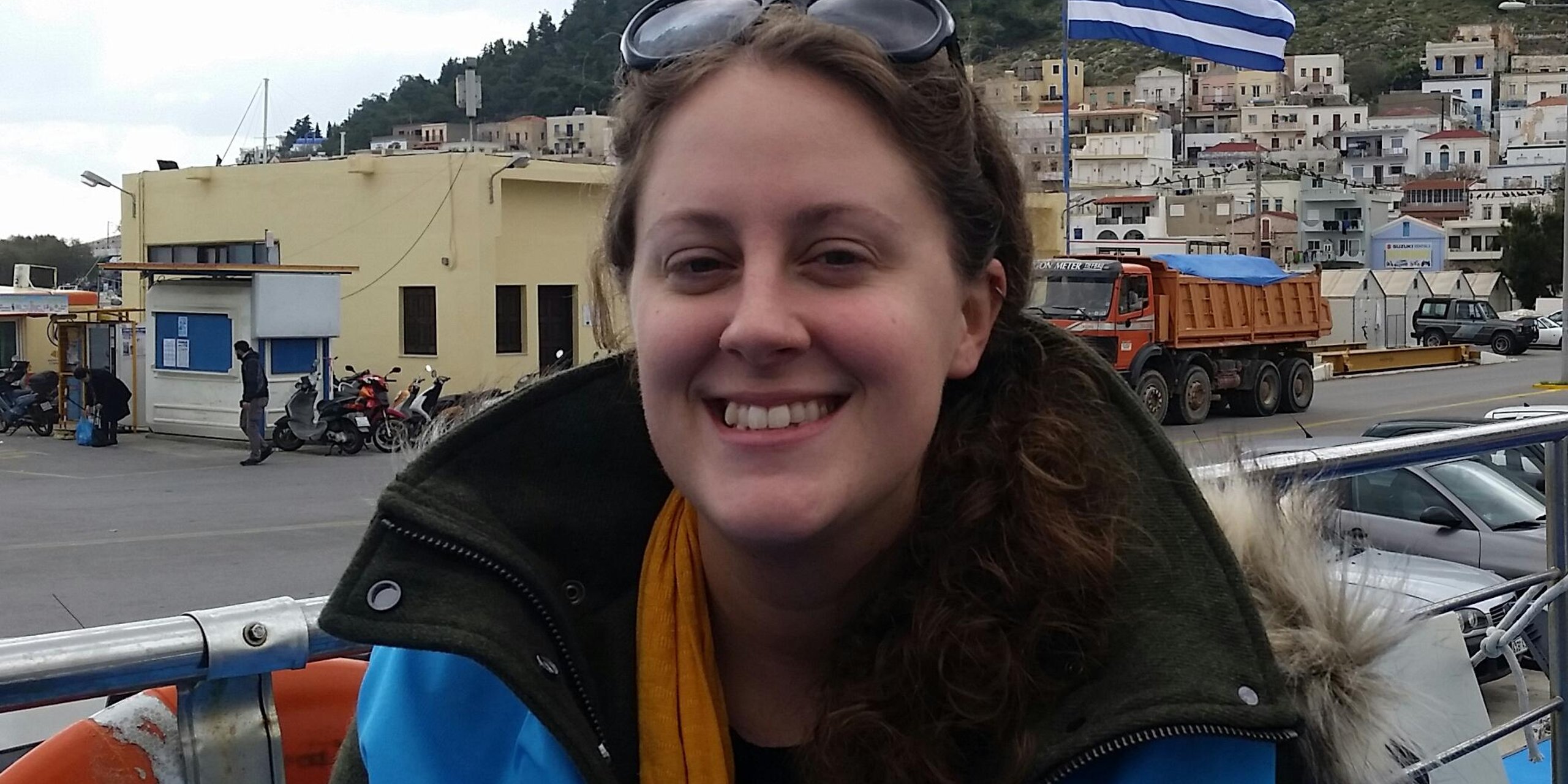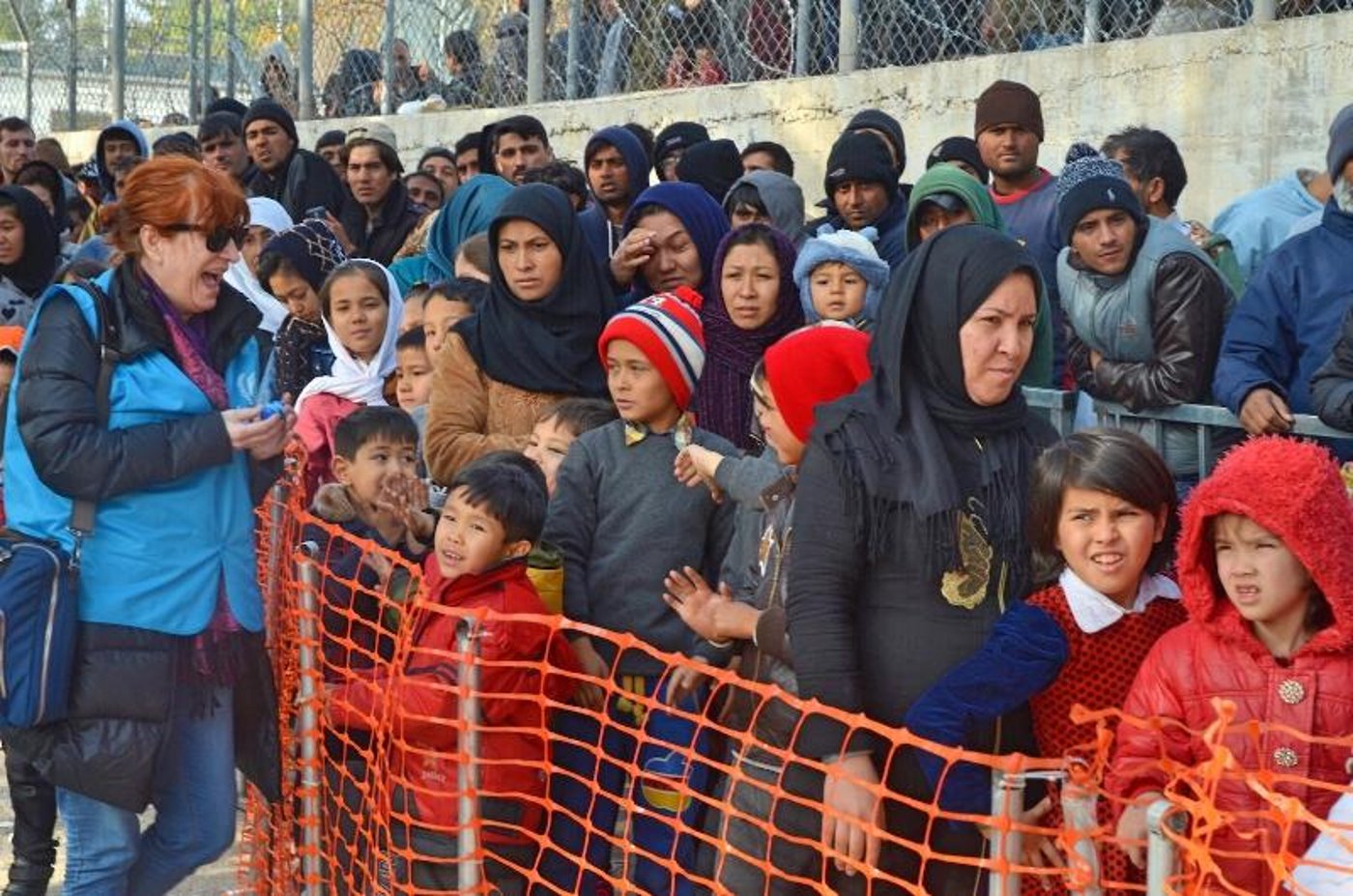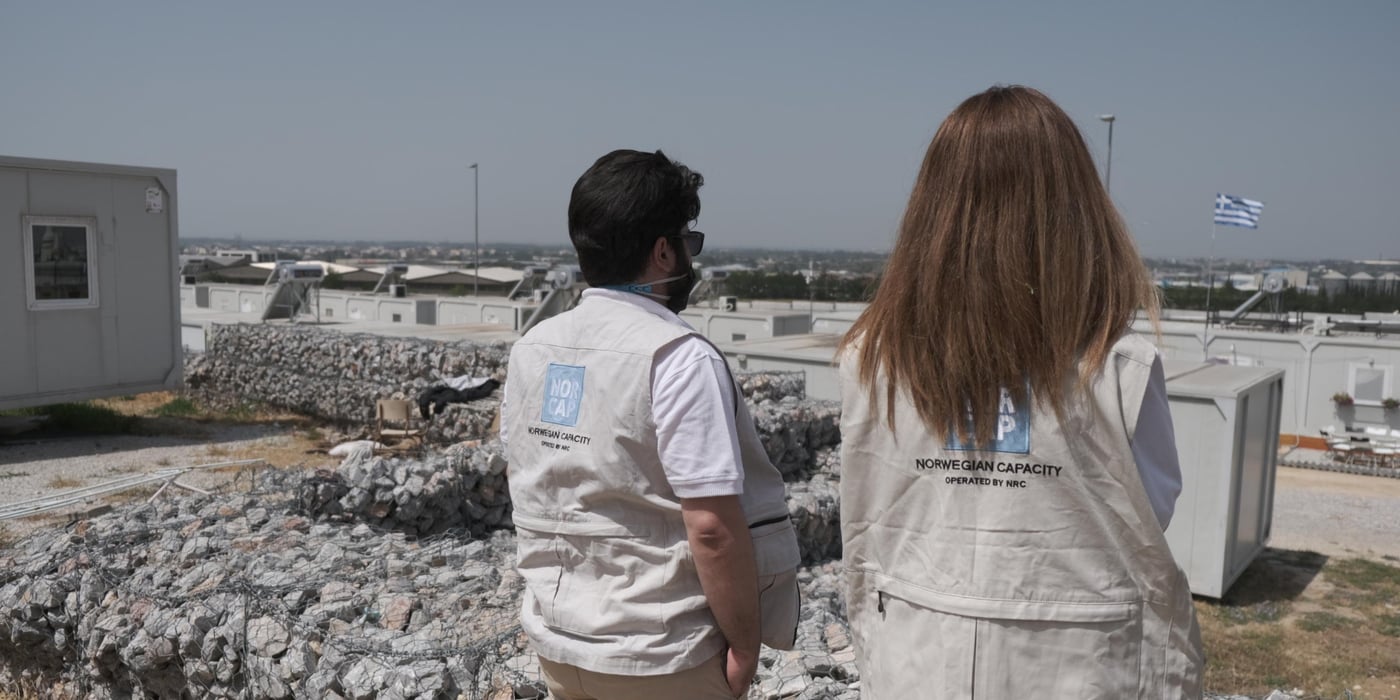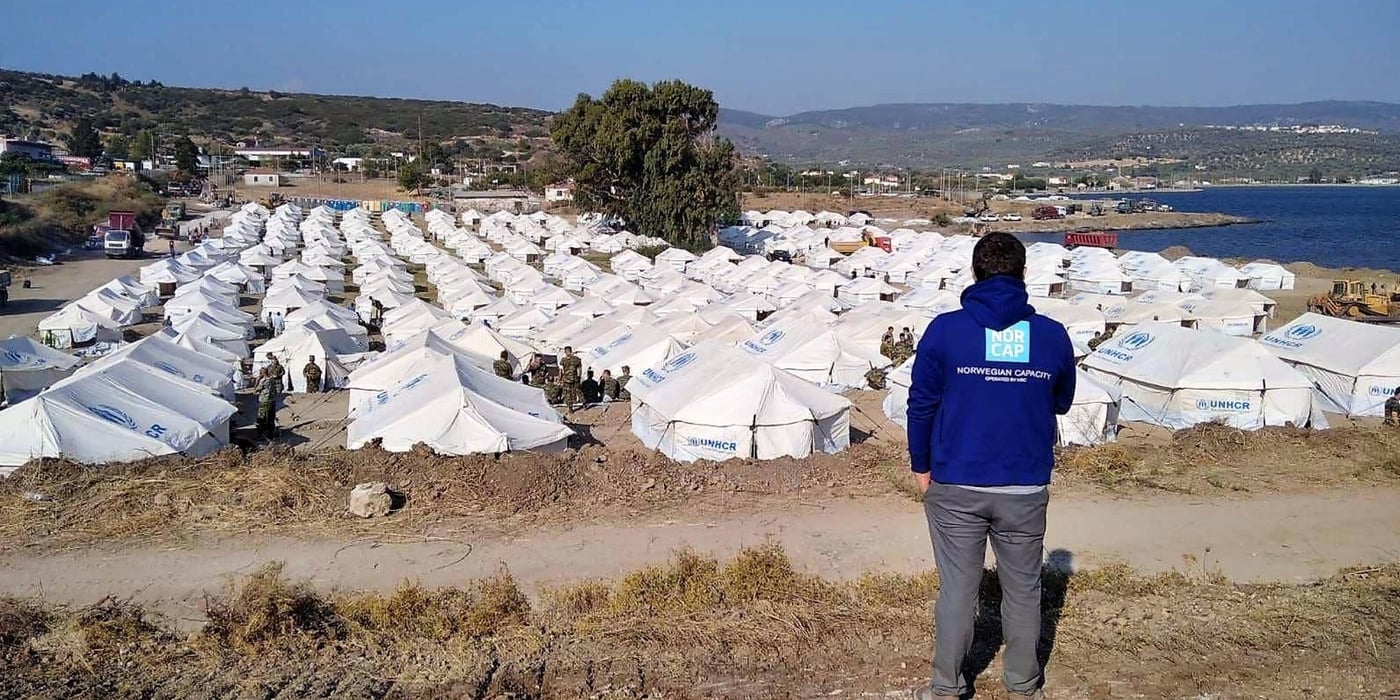
Arwen is deployed to UNHCR as a communications with communities (CWC) expert from the humanitarian communication roster, led by NORCAP on behalf of the Communication with Disaster-affected Communities (CDAC) network.
Together with team leader Virginia M. Moncrieff, and Benjamin Grubb, Arwen has been travelling throughout the Greek islands for the past few months, visiting refugee and migrant landing points, registration sites and accommodation areas, and assessing the communication needs of the large and highly mobile travelling population.
"A lot of the information people need is very immediate" says Arwen. "They need to know "Where do we get registered? Where can we get food and water and showers?"
On trips to the accommodation sites where the refugees and migrants stay for sometimes hours, sometimes days, the team determines what type of communication support can be provided.
"It can be simple signs or audio messages, or a place to charge their mobile phones," Arwen says. "We are always conscious that because this is a humanitarian emergency like no other, we have to be constantly aware of changing needs. And that's a difficult task because the refugees are continuously on the move".
First NORCAP communications team
The need for information and communication among communities affected by the refugee crisis in Europe is one of the main gaps identified by organizations working on the ground.
To address this need, NORCAP, in partnership with the United Nations High Commissioner for Refugees (UNHCR) has deployed the communication with communities team to Greece.
"It is the first time we have deployed a specialized communications team, and we work closely with UNHCR to make sure the project is proactive and responsive to the flexible nature of the crisis, to the communication needs on the ground, and to the diversity of the refugee and migrant population," explains Anne Cath. da Silva, Head of Partnerships and Development Section in NORCAP.

"Facebook refugee crisis"
The CWC team includes an innovation advisor who understands and responds to the changing ways refugee crises unfold in the 21st century.
"Most of the refugees and migrants have mobile phones and they get a lot of the information through social media, so we include that as a vital part of the way we approach message delivery", says Arwen.
The European refugee crisis has been dubbed the "Facebook refugee crisis" and the communications team thinks there is some truth to that.
"If you are a middle class Syrian with a smart phone, there's a good chance you are plugged into many different networks to find out travel routes, weather conditions, the whereabouts of family and friends, even tips on "honest" smugglers", states Virginia M. Moncrieff.
"But if you are from a largely rural area in remote Afghanistan and suffered from huge disruption in your life, you may be illiterate and unable to use all these different tools. So we try and balance all those needs when delivering information."
Vital support
Another challenge is that while many of the same issues are seen on every island, each island also has its own set of communication problems and needs.
"The concept of providing information and communicating with refugees and migrants is vital," says Arwen. "It is challenging and the focus with all our messages meets UNHCR's mandate of protection. With consistent messages all along the route to Europe and constant checking that the information is relevant, we will hopefully contribute to protection for the refugees."
"Utterly essential"
"We always say, "information is protection". And there's nothing more important than protection in any emergency. You can have all the good system, ideas, mandates and policies in the world, but if you do not communicate them to those you are supposed to protect, there's no point in having them in the first place".
Communication with communities specialists only have one job; to get information where it's needed and that makes them utterly essential."




